Discover PharmaLex Talks
PharmaLex Talks

PharmaLex Talks
Author: PharmaLex Talks
Subscribed: 5Played: 123Subscribe
Share
© PHARMALEX GMBH
Description
Hosted by PharmaLex and with guests comprised of leading industry figures, the PharmaLex Talks podcast is a place for discussion on important topics within the Pharmaceutical and Pharma-adjacent sectors.
37 Episodes
Reverse
We talk with Paula King, Director, Regulatory Affairs at PharmaLex to better understand the growing trend toward regulatory outsourcing, particularly of the mature product portfolio. Hear how leading companies are sustaining revenue streams and renewing focus on innovation by optimizing the operational costs of complying with stringent regional and local regulatory requirements.
Join Karl-Heinz Loebel, Director, Regulatory Informatics & Operations at PharmaLex, as he discusses current progress of eCTD 4.0. Ten years after the eCTD 4.0 standard became available for submissions to any ICH-participating regulatory agency, there is movement in some regions towards implementation. Karl-Heinz shares his knowledge and perspective on the journey so far and the outlook for further eCTD 4.0 adoption.
In this episode of the PharmaLex Talks Podcast, sits down with Alex Brenchat, Vice President of Local Affiliate Pharmacovigilance Services at PharmaLex, a Cencora company. Together, they explore the complexities of pharmacovigilance (PV) in a global context, focusing on the unique challenges faced by local affiliates in navigating diverse regulations post-marketing. With over 20 years of experience in the pharmaceutical industry, Alex shares valuable insights on balancing local requirements with global standards, the resource-intensive nature of PV activities, and effective strategies for outsourcing these critical functions. Listeners will gain a deeper understanding of the importance of local expertise, streamlined processes, and the role of technology in managing PV activities efficiently. Join us for an informative discussion that sheds light on best practices and the future of pharmacovigilance in the ever-evolving pharmaceutical landscape.
Join Angela-Vogt Eisele, Associate Director Scientific Affairs at PharmaLex, a Cencora company for this podcast, where she shares her expertise in Environmental Risk Assessment and its growing importance in the German Pharma Strategy
Join PharmaLex's Patrick Nieuwenhuizen for this podcast, where he shares his expertise in sterility assurance and how manufacturers can demonstrate that the finished product is sterile through a holistic contamination control strategy (CCS), based on a risk assessment.
Pharmaceutical companies new to the EU market must navigate complex and varying commercialization requirements. The podcast highlights key steps for commercialization readiness in Europe, focusing on the challenges non-EU companies face, including supply chain logistics and regulatory complexities. Early planning, strategic partnerships, and understanding local regulations are essential for successful product launches in diverse European markets.
Louise Uí Fhatharta bio
Quality professional with over 20 years’ experience in Microbiology, Quality Control and Quality Assurance roles in the Pharmaceutical Industry including Sterile Fill Finish and Medical Device.
Involved in site and laboratory expansion projects from design through to method transfer and operational readiness. Supported site in a capacity of Quality, Sterility Assurance and Microbiology Lead oversight during projects. Through Industry experience strong analytical and problem-solving skills have been attained and highly developed strong leadership skills. Successful experience of leading FDA, HPRA and DEKRA Health Authority inspections.
A contamination control strategy (CCS) is integral to Annex 1 and is fundamentally about patient safety and identifying and avoiding contamination pathways. Manufacturers are expected to implement a CCS across their facilities in order to define all critical control points and assess the effectiveness of all the controls and monitoring measures employed to manage risks associated with contamination. The CCS should be actively updated and should drive continuous improvement of manufacturing and control methods. Join our podcast where Londa Ritchey and Patrick Nieuwenhuizen, PharmaLex experts in quality management and compliance, share their insights on the purposes and pathways of a CCS.
Bio: Londa Ritchey
Londa Ritchey is currently a Quality Director at PharmaLex with 30 years of experience in pharma/biopharma/ATMP quality assurance emphasizing sterile drug substance and drug product operations. Londa's experience includes quality risk management, aseptic quality operations, quality systems design and implementation, contamination risk management, supplier quality management, training program design and inspection readiness. Her educational background includes degrees in Microbiology, Biostatistics, and an MBA.
Bio: Patrick Nieuwenhuizen
Quality professional with a Microbiology & Sterile Manufacturing background with over 25 years’ experience in the Pharmaceutical Industry. Worked for several global Pharmaceutical and Biotechnology companies across a variety of platforms including Biologics, Sterile Fill Finish and Solid Oral Dose.
Involved with several site and laboratory expansion projects from construction design through to method transfer and operational readiness, and has provided Quality, Sterility Assurance and Microbiology oversight where relevant during these projects.
In addition to site responsibilities, involved in several corporate initiatives such as Sterility Assurance Council and the roll-out of corporate standard programs that required collaboration and communication across multiple diverse sites for the improvement and maintenance of organisational quality standards. Next to that acting as a lead auditor and have been involved with audits facing several competent authority inspections including but not limited to the HPRA, FDA, ANVISA, Chinese FDA and Canadian Health Authority inspections.
Acted as risk facilitator for Quality Risk Management programs and have gained significant experience with problem-solving and management of complex investigations.
Synopsis: In this podcast, Gerardo Gomez talks about the interactions between validation and technology transfer, considering the views and expectations of the regulators. As Gerardo explains, technology transfer is really a very sophisticated and complex project management activity and therefore needs to be carefully planned to avoid discrepancies or deviations from the regulations.
Bio: Dr. Gerardo Gomez has more than 25 years of experience in the Pharmaceutical and Biotechnology industries. He has held technical and leadership roles in the areas of validations, technical transfer, operations, and regulatory compliance in major biopharmaceutical companies. As part of the PharmaLex leadership team, Gerardo is conducting both strategic and tactical (execution) projects, while playing key roles for PharmaLex clients – big and small – and for PharmaLex talent and business development initiatives. Gerardo earned his Ph.D. in Pharmaceutical Sciences from the University of Michigan, after graduating magna cum laude from the Chemical Engineering department at The University of Puerto Rico.
Synopsis: Early access programs are designed to allow patients suffering from a life-threatening unmet medical need or disease to be given promising treatments that have not yet received marketing approval. Examples of these types of programs include named patient programs, which are for a specific patient suffering from a rare, ultra-rare or life-threatening disease, and cohort programs, where patients with the same disease have been identified.
Bio: Patrick Larcier is Senior Director at PharmaLex, where he draw on his 30 years of experience in drug development and regulatory affairs at biotechnology companies, CROs and in consulting. Patrick works on Strategic Product Development Solutions for PharmaLex’s global projects. His expertise lies in the design and implementation of regulatory strategies for complex and innovative medicinal products at all stages of clinical development.
Bio Patrick Nieuwenhuizen
Quality professional with a Microbiology & Sterile Manufacturing background with over 25 years’ experience in the Pharmaceutical Industry. Worked for several global Pharmaceutical and Biotechnology companies across a variety of platforms including Biologics, Sterile Fill Finish and Solid Oral Dose.
Involved with several site and laboratory expansion projects from construction design through to method transfer and operational readiness, and has provided Quality, Sterility Assurance and Microbiology oversight where relevant during these projects.
In addition to site responsibilities, involved in several corporate initiatives such as Sterility Assurance Council and the roll-out of corporate standard programs that required collaboration and communication across multiple diverse sites for the improvement and maintenance of organisational quality standards. Next to that acting as a lead auditor and have been involved with audits facing several competent authority inspections including but not limited to the HPRA, FDA, ANVISA, Chinese FDA and Canadian Health Authority inspections.
Acted as risk facilitator for Quality Risk Management programs and have gained significant experience with problem-solving and management of complex investigations.
Synopsis: Technology transfer involves two main types: scale-up and transfer to a different site. Scale-up technology transfer involves moving a technology or process from a laboratory or pilot-scale environment to a larger production scale. Transfer to a different site involves relocating a technology or process from one location or organization to another. Listen to the podcast to learn more about technology transfer and important considerations for success.
Bio: Olena Chervonenko is Associate Director Quality Management and Compliance at PharmaLex, where she draws on her expertise in quality management and regulatory compliance to support clients and her team. Olena has a Master’s degree in Pharmaceutical Chemistry from Odesa Mechnikov National University.
Bio: Michael Braun-Boghos
Michael has been working in medicinal product safety for the last three decades. He spent 13 years at the European PV headquarters of Fujisawa, which later became Astellas, ultimately leading the Safety Data and Quality Management group. Thereafter he joined Relsys, the developer of the Argus software, and finally came to Oracle with the Relsys acquisition in 2009. As a senior director in the safety strategy team, he helps drive the product roadmap of the Oracle Safety One Platform including Argus, Empirica, Safety One Intake, and Oracle Analytics.
Bio: Cheryl James
Cheryl James has worked at a senior level within the pharmaceutical industry for over 15 years, building extensive business knowledge and implementation experience with the Oracle Life Sciences suite, specifically AERS and now Argus Safety.
In her role as Director of Safety Analytics for PharmaLex (formerly pharmasol), Cheryl has been instrumental in developing the Argus components that have culminated in the industry-leading rapidLIVE – PharmaLex’s accelerated, pre-packaged implementation for Oracle Argus.
Cheryl was first appointed as Director of Pharmacovigilance for pharmasol in 2008, joining from Oracle, where she served as Senior Life Sciences Consultant specialising in AERS. Prior to Oracle, she held the position of Principal Pharmacovigilance Scientist within the newly created Pharmacovigilance group at PPD, a global CRO. This role provided the opportunity to develop invaluable interdisciplinary experience across numerous Oracle applications and multiple drug safety systems. Previously, Cheryl worked as part of a research group within a cutting-edge medical centre, sparking her career-long interest in drug safety.
Cheryl holds a BSc in Biology and Psychology from the University of Bristol.
Market access can be a big hurdle for companies to overcome and might require a different approach to the process of gathering evidence to support reimbursement discussions. Early phase modeling can help to inform feasibility of future adoption, the product development program, support investor communication, and sometimes even to inform decisions on whether to pursue product development or not. The podcast explores early phase modeling, what it is and why it’s becoming a key component in reimbursement and patient access.
Bio: Annabelle Fosmark is Senior Manager, Health Economics & Outcomes Research at PharmaLex and has vast experience in managing projects concerning all the Nordic markets, including reimbursement dossiers, supporting payer negotiation processes, health economic modelling, evaluation of clinical and health economic data, and strategic advice on market access.
Combination products offer unique advantages in terms of delivering improved therapeutic outcomes or enhanced patient convenience. Typically, combination products are understood to be a drug-device or biologic-device combination. The regulatory strategy as to which center at the FDA has jurisdiction over product approval depends on their primary mode of action. Listen to the podcast to learn more about combination products and how they are regulated.
Guests’ bio:
John Lockwood is Senior Director, Head of Medical Devices/IVDs, Americas for PharmaLex, where he leverages his more than 28 years of industry experience across quality, regulatory, operations, development, validation, and purchasing. John has worked at both small and large medical device manufacturers and has spent more than a decade in consulting.
Companies often fall into common traps in early-stage product development. These range from interactions with the regulators to their ability to manufacture their product. Forward planning is crucial, but all too often smaller companies lack the regulatory, business development or marketing expertise needed to support this way of thinking. The podcast explores some of the pitfalls companies can fall into and ways to avoid them.
An expert in global drug development, Alex Klein has over 15 years of experience at some of the world’s leading organizations including Abbott, Abbvie, and Hospira, as well as various biotech startups. Her drug development experience includes both biologics and small molecules across multiple therapeutic areas. Possessing an understanding of what it takes to deliver new drugs to market, she has progressed several assets through development from preclinical through commercialization including supporting key regulatory agency meetings and submissions.
The pharmaceutical industry has been globalizing for many years as demand for medicinal products grows and as companies look to expand into the large and increasingly prosperous emerging markets. The impact of rapid globalization is that the industry is dealing with complex and ever-changing regulations and government policies that can vary across jurisdictions. The podcast explores the opportunities and challenges of globalization.
Bio: Dr. Jürgen Hönig is Senior Director, Regulatory Business Intelligence, where he participates in the design of regulatory affairs strategy, analyzes trends in the pharmaceutical and regulatory devices industries and supports the interface between regulatory affairs and marketing and sales. Jürgen has been in the pharmaceutical industry for nearly 25 years and previously was a pharmacist. He has a Ph.D. and an undergraduate degree in pharmacy.
For US-based companies seeking to market their product in the EU, it can be a struggle to navigate a different market, and, in particular, to manage requirements from a safety reporting perspective. The podcast explores the challenges faced managing not only the European pharmacovigilance legislation but also dealing with each EU Member State, which can implement these requirements in their own way at the national level.
Bios:
Monica Buchberger is senior director of pharmacovigilance at PharmaLex, drawing on her many years in industry in pharmacovigilance and regulatory roles, including quality assurance systems and serving as the EU QPPV for Abbott Laboratories.
Stephen Sun is a physician by training who heads up the US pharmacovigilance team for global PharmaLex and is also the service area head for benefit-risk management.
Artificial intelligence is playing an increasingly important role in document management in the life sciences industry and in particular in improving management and oversight of the Trial Master File (TMF). The podcast explores why and how AI is a gamechanger for the TMF and what it means for pharmaceutical companies now and in the future.
Bio:
Jim Horstmann is Product Manager of Clinical Products at Phlexglobal where he draws on his extensive experience in document management solutions that comply with health authority regulations while also being easy to use and interoperable with other systems. For the past 11 years, Jim has focused primarily on electronic Trial Master File solutions. He is passionate about optimizing business processes by leveraging technology to help make organizations more efficient and productive.
For more information about how AI is used PhlexTMF, please visit https://www.phlexglobal.com/
Summary:
IVD manufacturers must perform two types of performance studies, clinical performance and analytical performance, in order to provide evidence that the device is safe and performs as intended.
While both have always been required, IVDR is a lot more prescriptive.
Speaker:
Keely So is Manager, Medical Devices / IVD at PharmaLex, leveraging her extensive knowledge of the regulatory requirements in Australia, Europe, New Zealand, the USA, Canada and Asia to help clients with new product licensing and launch, regulatory impact and gap assessments, CE marking of devices and IVDs, ongoing product compliance initiatives and audit support.
Links:
https://www.pharmalex.com/pharmalex-industry-sectors/medtech/




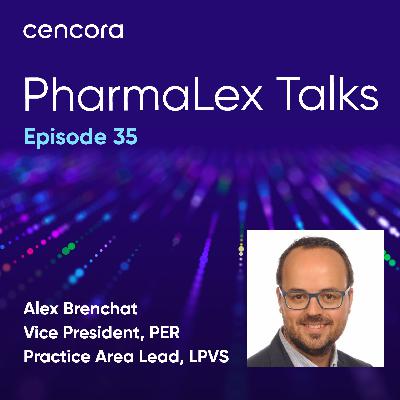
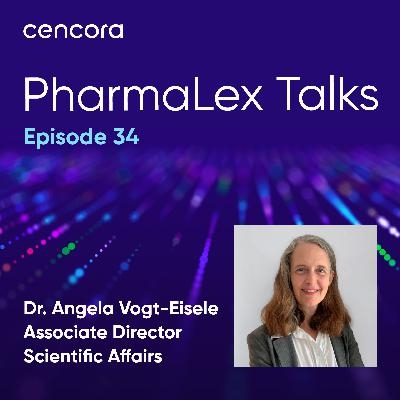
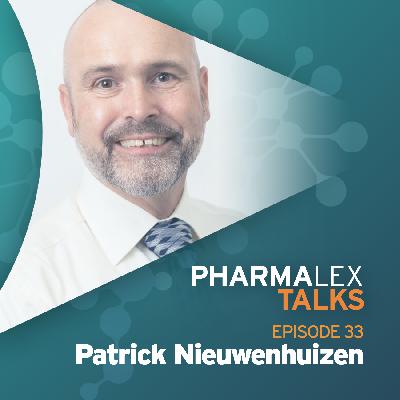
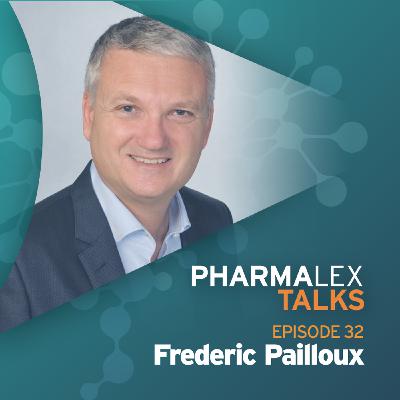
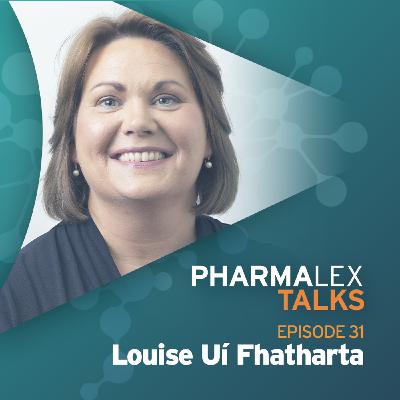
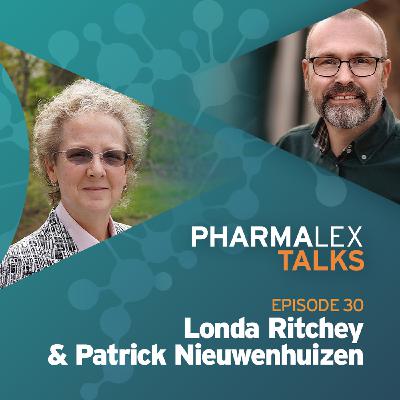
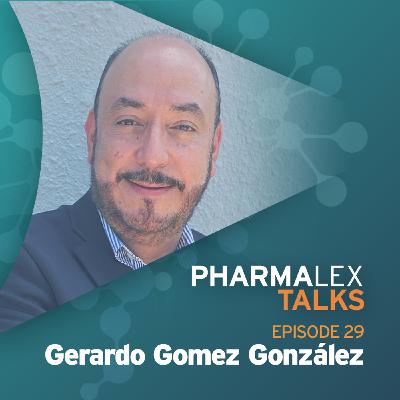
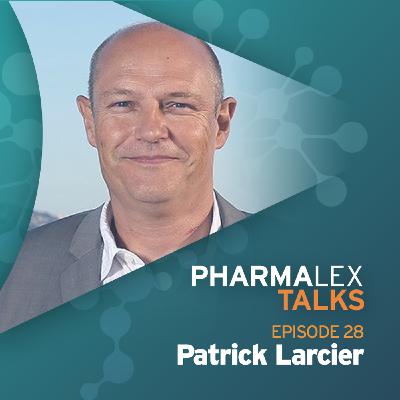
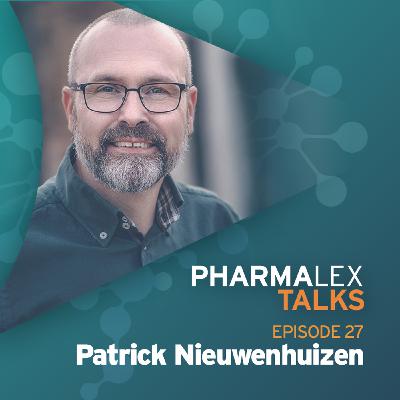

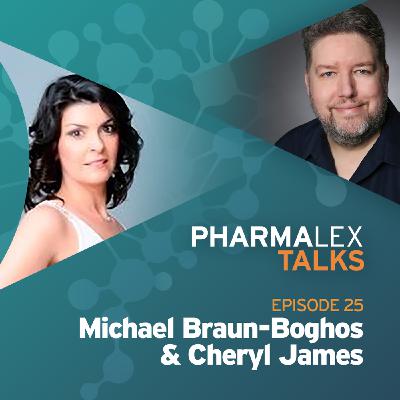
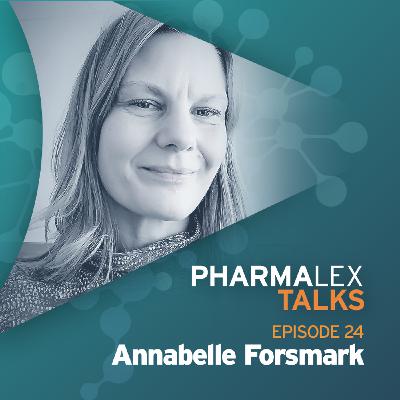

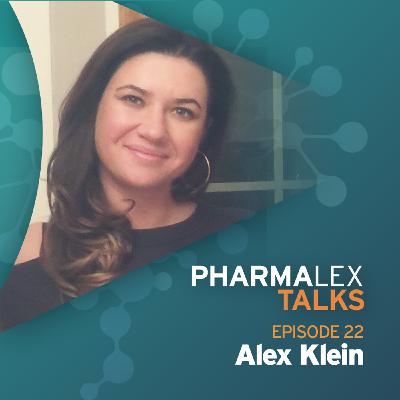

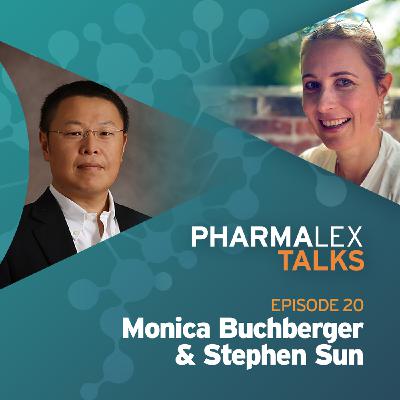

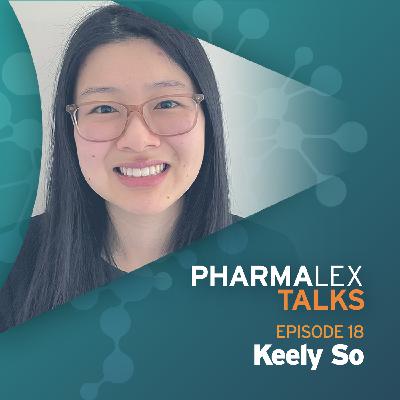



really interesting, thanks
excellent, such a clear description of the new annex 1...